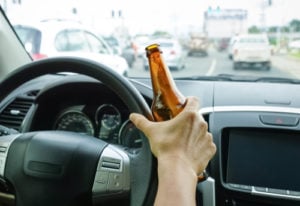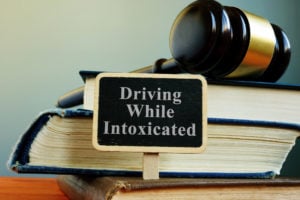
Absolutely! Driving while under the influence of prescription drugs can result in a DWI (driving while intoxicated) or other related charges that may lead to steep fines, jail time, and other severe penalties. This is because, the police believe, even the legitimate use of certain medications can still impair a person’s ability to operate their vehicle safely. In fact, law enforcement has specific bogus methods of detecting the presence of intoxicating substances in a person’s system, including many types of prescription drugs.
A Houston DWI lawyer can provide confidential consultation and work with you to fight the charges.
How Do Police Test for Prescription Drugs?
Unlike alcohol, prescription drug use cannot be estimated using a breathalyzer to determine a driver’s potential level of intoxication. Instead, law enforcement uses various other methods to gauge a person’s degree of impairment, including the following:
Field Sobriety Tests (FSTs)
FSTs are roadside tests performed to evaluate a driver’s balance, coordination, and cognitive abilities. These include the one-leg stand test, walk-and-turn test, and horizontal gaze nystagmus (HGN) test. During an HGN test, the police officer looks for involuntary eye movements (nystagmus) as the driver’s eyes track a moving object.
Drug Recognition Evaluation
Officers trained as Drug Recognition Experts (DREs) perform special assessments to guess if a driver is impaired by drugs. This evaluation involves observing the driver’s behavior, performing physical examinations, checking vital signs, and administering various tests to detect signs of drug impairment.
Law enforcement must also be specially trained to observe signs of impairment during a traffic stop, such as dilated pupils, slurred speech, impaired driving behavior, and the presence of drugs or drug-related paraphernalia in a vehicle.
Chemical Tests
Although breathalyzers only work for measuring a driver’s BAC, blood and urine tests can still be used to identify the presence of drugs in their system. These may be performed at a police station or a medical facility after a DWI arrest. In some areas, saliva tests may be used to quickly screen for the presence of certain prescription and illegal drugs, including opioids, marijuana, and amphetamines.
For a legal consultation, call 713-225-1900
What Qualifications Should I Look for in a DWI Defense Attorney?
If you are facing a DWI charge, whether it involves prescription drugs, illicit substances, or alcohol, you should seek a criminal defense attorney who understands how to successfully contest the validity and accuracy of these other testing methods. Jay Blass Cohen is certified as an ACS-CHAL Forensic Lawyer-Scientist and forensic chromatography for both alcohol and drugs, a practitioner and instructor in Standardized Field Sobriety Testing, and has completed training as a Drug Recognition Expert.
What Are the Penalties for DWI in Texas?
In Texas, DWI penalties related to drug intoxication can vary depending on factors such as prior offenses and whether any aggravating circumstances were involved. These include the following:
First offense:
- A fine of up to $2,000
- Jail time ranging from 3 to 180 days
- Driver’s license suspension for up to 2 years
Second offense:
- A fine of up to $4,000
- Jail time ranging from 30 days to 1 year
- Driver’s license suspension for up to 2 years
Third offense (considered a third-degree felony):
- A fine of up to $10,000
- Prison time ranging from 2 years to 10 years
- Driver’s license suspension for up to 2 years
Additional penalties can include:
- Required attendance at DWI intervention or education programs
- Installation of an ignition interlock device on the vehicle
- Community service
- Probation
Aggravating factors such as causing injury or death while intoxicated or driving with a minor passenger in the vehicle can result in significantly enhanced penalties.
Click to contact our Houston lawyer today
Prescription Drugs That Can Cause Impairment
If you are taking medication and experiencing any side effects that may impair your ability to drive, it’s crucial to avoid doing so until you know how the medication affects you.
Prescription medications that can result in driving impairments or any combination, therefore, include the following:
- Opioids such as hydrocodone (e.g., Norco) and oxycodone (e.g., OxyContin) used for pain can cause drowsiness, dizziness, and impaired coordination.
- Benzodiazepines like diazepam (e.g., Valium) and alprazolam (e.g., Xanax) used to treat anxiety can cause drowsiness, dizziness, and impaired coordination.
- Antihistamines such as diphenhydramine (e.g., Benadryl) can cause drowsiness and delay reaction times.
- Antidepressants, especially tricyclic and tetracyclic antidepressants, can cause blurred vision, drowsiness, and impaired coordination.
- Muscle relaxants like cyclobenzaprine (e.g., Flexeril) and carisoprodol (e.g., Soma) used to treat muscle pain and rigidity can cause dizziness, drowsiness, and impaired coordination.
- Anti-epileptic drugs such as gabapentin (e.g., Neurontin) and pregabalin (e.g., Lyrica) used to treat seizures can cause dizziness and drowsiness.
- Sleep medications like zolpidem (e.g., Ambien) and eszopiclone (e.g., Lunesta) used to help with insomnia and sleep disturbances can cause drowsiness and impaired coordination, especially when not taken as directed.
- Stimulants such as methylphenidate (e.g., Ritalin) and amphetamine/dextroamphetamine (e.g., Adderall) used to treat attention-deficit hyperactivity disorder can cause agitation, dizziness, and blurred vision.
- Antipsychotics like olanzapine (e.g., Zyprexa) and quetiapine (e.g., Seroquel) used to ease psychotic symptoms can cause drowsiness, dizziness, and impaired coordination.
Complete a Case Evaluation form now
Can I Face Charges for Drug Possession?
It’s important to remember that if you are pulled over for a suspected DWI, you may be facing additional charges if you have prescription drugs on your person or in your vehicle that are not prescribed to you. Although penalties may not be as severe as those involving illicit drugs, possessing controlled substances, including medications, without a valid prescription may result in fines, probation, or even jail time.
Contact Us To Learn More About DWI Defense Today
If you are facing DWI charges after being arrested for being under the influence of prescription drugs, we urge you to contact Blass Law today for a confidential consultation. Jay Cohen Blass and his legal team are dedicated to providing the strongest defense possible for our clients, fighting for their rights, and pursuing the best outcome available in their cases. We believe that regardless of the charges you are facing, you are entitled to access to fierce legal advocacy.
Call or text 713-225-1900 or complete a Case Evaluation form





